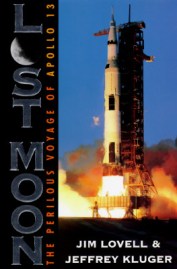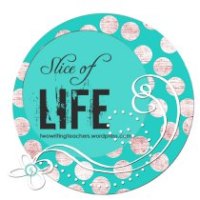In Lost Moon: The Perilous Voyage of Apollo 13, Jim Lovell’s memoir of the “successful failure” of Apollo 13, Lovell and his co-writer, Jeffrey Kluger, describe the moments after the explosion of the oxygen tank. Gauges were reading zero at Mission Control, but not on the spacecraft, and the best engineers in the world were sure it was a “sick sensor-type problem.” (p.99) As his frustration mounted, Lovell’s instinct kicked in:
“The Commander let go of the attitude controller, punched open his seat buckle, and floated up to the left-hand window to see if he could determine what was going on out there. It was the oldest pilot’s instinct in the world…what Lovell really needed was a simple walk-around, a chance to make one slow, 360-degree circuit of his ship, to eyeball the exterior, kick the tires, look for damage, sniff for leaks, and then tell the folks on the ground if anything was really wrong and just what had to be done to fix it. However, he had to settle for a look out the side windows…The odds of diagnosing the ship’s illness this way were long, but…they paid off instantly. As soon as Lovell pressed his nose to the glass, his eye caught a thin, white, gassy cloud surrounding his craft…”(p. 101)
Even with millions of dollars of computers, equipment, and engineers, the source of the problem wasn’t identified until someone looked out the window.

I thought of this scene as I administered a DRA2 (Developmental Reading Assessment, Joetta M. Beaver, Celebration Press. 2006) to a student the other day. I watched this student carefully as he negotiated the challenges that a level 10 benchmark book presented. Could he decode the long vowel words? Check. Was he strategic when he came to other unknown words? Check. Did he monitor for meaning when he read an unfamiliar word? Check. Did he read fluently and with expression? No.
This boy, who has worked so hard this year and has made so much progress, did not meet the criteria established by the publisher to be considered “Independent” at this level. Does that mean I’ll tell his parents at conferences this week that their son is a “deficient reader?” Absolutely not. I will tell them that their son is a reader who knows what to do when he gets to a word he doesn’t know. That he’s a reader who goes back and rereads when something doesn’t make sense. That he’s a reader who is starting to read in longer phrases. That he gets tired as he reads and should read more at home to build up his stamina so he’ll be able to keep up as the books he reads get longer.
Presenting his parents with his oral reading fluency score of 10 out of 16 would be meaningless to them, just as meaningless as the data on Mission Control’s computers as they tried to figure out what to do after Apollo 13’s oxygen tank exploded. It took the trained mind of a pilot to make sense of those numbers. Just as it takes an expert teacher, who knows her students because she has spent countless hours with them, observing them, to know that her students are more than a number. To know they are people who have strengths to build on, and with her help, will overcome their challenges.
Thank you to Stacey and Ruth at Two Writing Teachers for hosting this Slice of Life Challenge!


This is so true. I love the depth of knowledge that you show about your student’s reading strengths and weaknesses and how you plan to share that information with his parents in a way that makes sense.
LikeLike
Catherine-that’s a great analogy and could be made for so many instances in education. It really leads right back to the age old is teaching an art or a science debate. Certainly there’s room for both, but they should inform each other, I’d say. Love the connection to the Apollo. Have to remember that one.
LikeLike
There is so much conversation about assessment that looks more like testing and data use that focuses solely on numbers right now that the important conversations are not bubbling to the surface as much. Thank you for sharing this perspective. It’s so important. This is what assessment is….and it’s assessment…not testing…that serves kids.
LikeLike